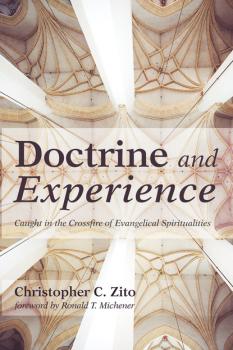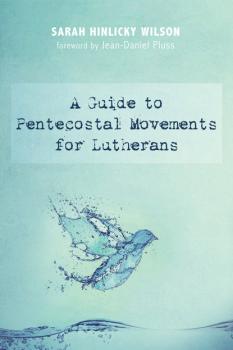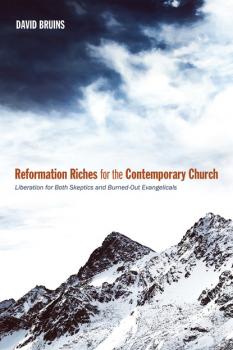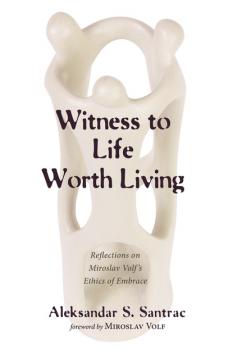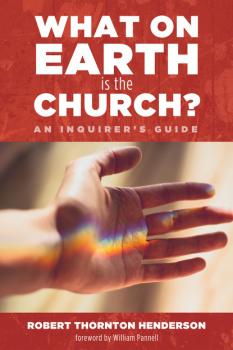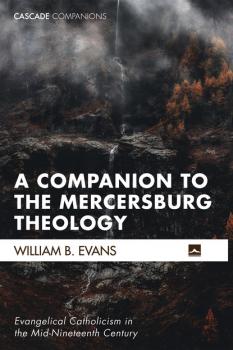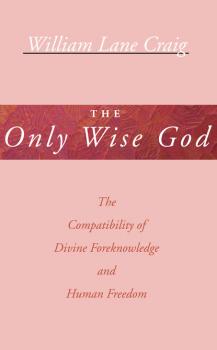ТОП просматриваемых книг сайта:
Словари
Различные книги в жанре Словари, доступные для чтения и скачиванияАннотация
The emancipation and empowerment of women has been a worldwide phenomenon of concern to many countries and organizations within the twentieth and twenty-first centuries. Although Tanzania, as a country, and the Evangelical Lutheran Church in Tanzania (ELCT) Northern Diocese, as an institution, have embraced the idea of gender equality, most women in Tanzania have yet to experience this in full. This book is, therefore, based upon an understanding of the church as participating in God's mission, which is rooted in a context of equality and as such stands in a better position to empower women to overcome some of the patriarchal practices that have put them on the margin of attaining full humanity. Therefore, the book examines how Ushirika wa Neema Deaconess Centre contributes to the empowerment of women in the Evangelical Lutheran Church in Tanzania (ELCT) Northern Diocese and fosters gender awareness in the church and the entire community. Ushirika wa Neema Deaconess Centre provides women with opportunities, such as the means for independent income, for education, for professional training, and for learning life skills. These opportunities change women's self-esteem, as well as raise their self-confidence and respect in the church and community.
Аннотация
Should evangelical spirituality be grounded in doctrine, experience, neither, or both? If in one, which, and why not the other? If in both, how might the two co-exist without cancelling out each other's distinctives? If in neither, then what practical value does either have for the Christian life? In this book, the author has combined critical research, pastoral awareness, and thoughtful reflection to show how the radicalizations of doctrine and experience have not only polarized contemporary evangelicalism into two nearly irreconcilable camps, but also has opened the door for a subtle but potent form of idolatry to creep into our midst. In an attempt to purge these idols and bridge the gap, this book contextualizes the biblical teachings and practices of our original spiritual instructors, asking the double-edged question of what it means for us today that the Word of God is normative and that the Spirit is Lord. The author concludes that evangelicals should seek an incarnate, cross-centered spirituality that is informed by meticulous attention and obedience to sound doctrine, but only as it is lived out in a deeply felt faith that is made perfect as we experience God daily in any number of ways.
Аннотация
In just over a century, Pentecostalism has rocketed from its humble beginnings in an interracial congregation on Azusa Street in Los Angeles to a global movement counting more than six hundred million members. Confronted with the bewildering array of Pentecostal, Charismatic, and Neocharismatic beliefs and practices, Lutherans are often at a loss as to how to think about Pentecostals, much less how to engage them in positive ways that build up the whole body of Christ.
In this guide, Lutherans will find tools for just such an engagement. Building on a foundation of Pentecostalism's history and varieties, Wilson undertakes an in-depth survey of biblical teaching on baptism, the Holy Spirit, and spiritual gifts. The guide then brings innovative new lenses to bear on the questions at stake: the use of church history in defending denominational borders, right and wrong approaches to prosperity, the power of the Spirit and corruptions of power, and the role of experience in theological discernment.
Written in a style accessible to laity and clergy alike, this guide will strengthen Lutherans' appreciation of their own tradition while enabling them to encounter Pentecostals as fellow believers in the salvation given by the triune God.
In this guide, Lutherans will find tools for just such an engagement. Building on a foundation of Pentecostalism's history and varieties, Wilson undertakes an in-depth survey of biblical teaching on baptism, the Holy Spirit, and spiritual gifts. The guide then brings innovative new lenses to bear on the questions at stake: the use of church history in defending denominational borders, right and wrong approaches to prosperity, the power of the Spirit and corruptions of power, and the role of experience in theological discernment.
Written in a style accessible to laity and clergy alike, this guide will strengthen Lutherans' appreciation of their own tradition while enabling them to encounter Pentecostals as fellow believers in the salvation given by the triune God.
Аннотация
Korean American Catholics are celebrating their jubilee after having been officially recognized by the Archdiocese of San Francisco in 1966. This occasion affords the flourishing Korean American Catholic community to take stock of their identity, celebrate this milestone, and prepare for the future. What does it mean to be a Korean American Catholic? What are their particular challenges and hopes? The works contained in this book, articles written by leading Korean American scholars, theologians, and priests, serve to answer those questions and pose new ones, and lay down a marker that will surely one day be recognized as another significant one in the history of this growing voice in the United States religious landscape.
Аннотация
"Whether it is described as recovering treasures of gold, removing the clouds to reveal the clearest and bluest of skies, replacing fast food with delectable and healthy cuisine, or coming out of the valley to behold the most amazing Alpine splendor, rediscovering the glorious biblical truths which were recovered during the Reformation is extraordinarily liberating and invigorating."
The biblical teachings of the Protestant Reformation five hundred years ago freed Christians from many of the same forms of bondage that, ironically, have now reappeared in much of contemporary evangelical Christianity. Many evangelicals now find themselves trapped on performance-based treadmills, enslaved by neurotic introspection, and often just burning out and walking away from the church. Whether it's being fixated on «my performance» (legalism) or «my inner experience» (mysticism) or some other exhausting entanglement, there is, thankfully, a way out.
Protestant evangelical churches need to rediscover the liberating treasures of biblical Christianity that were recovered in the Protestant Reformation. This book encourages burned-out evangelicals to take another look–from a Reformation perspective–and begin basking in the good news and all of its vast riches. Through a series of thought-provoking essays, this book also introduces other skeptics to an undiluted and robust Christianity.
The biblical teachings of the Protestant Reformation five hundred years ago freed Christians from many of the same forms of bondage that, ironically, have now reappeared in much of contemporary evangelical Christianity. Many evangelicals now find themselves trapped on performance-based treadmills, enslaved by neurotic introspection, and often just burning out and walking away from the church. Whether it's being fixated on «my performance» (legalism) or «my inner experience» (mysticism) or some other exhausting entanglement, there is, thankfully, a way out.
Protestant evangelical churches need to rediscover the liberating treasures of biblical Christianity that were recovered in the Protestant Reformation. This book encourages burned-out evangelicals to take another look–from a Reformation perspective–and begin basking in the good news and all of its vast riches. Through a series of thought-provoking essays, this book also introduces other skeptics to an undiluted and robust Christianity.
Аннотация
This book is an exposition of the basic themes of the work of Miroslav Volf, the Yale ecumenical theologian who has written much about the ethics of embrace, life worth living and human flourishing, and my personal reflections on these themes. The volume is the first of its kind. So far there has been no attempt to systematize Volf's theology and ethics. However, the book is not just a simple description of Volf's work. It tries to merge into one single theological reflection Volf's two basic paradigms: the ethics of embrace and the concept of life worth living. It also demonstrates a unique approach from the perspective of the personal and spiritual reflections of the author who shares a worldview similar to Miroslav Volf's. The book is strengthened by many references to personal interviews and conversations with Miroslav Volf.
Аннотация
The author's focus and intention for this book was provoked by several stimuli. One is that more than 50 percent of the world's population is under twenty-five years of age, and for the most part not formed by the church. Secondly, in the coffee shop where he hangs out, when his conversation partners learn of his long career as a pastor, they inevitably ask about the church: «What in the world is the church? What is its purpose?» And thirdly, it is provoked by the lament of a very gifted journalist and editor who rejected his strict Christian upbringing and has been in his adult years an avowed agnostic–but who recently, while visiting a monastery in Spain and hearing the monks chant their evening prayers, sensed a longing for what he had forsaken. These three stimuli have inspired this attempt at an alternative narrative to the essence of the church, an attempt to give a definition to an inquirer from square one. This book may not resonate with those who are content with religious Christianity and its familiar institutions. Its timely message is this: the church has got to be a thrilling and purposeful dimension of the good news of Jesus Christ.
Аннотация
This volume tells the story of a mid-nineteenth-century theological movement emanating from the small German Reformed Seminary in Mercersburg, Pennsylvania, where John Williamson Nevin and Philip Schaff taught. There they explored themes–such as the centrality of the incarnation for theology, the importance of the church as the body of Christ and the sphere of salvation, liturgical and sacramental worship, and the organic historical development of the church and its doctrines–that continue to resonate today with many who seek a deeper and more historically informed expression of the Christian faith that is both evangelical and catholic.
Аннотация
Does God know our actions before we do them? And if so, do human beings truly have free will? Dr. Craig contends that both of these notions are compatible, showing how the Bible teaches divine foreknowledge of human free acts, and reveals two ways of «reconciling divine omniscience with human freedom».
Аннотация
Messianic Jewish Theological Institute
"Teaching and Living a Vision of Jewish Life Renewed in Yeshua"
Messianic Jewish Theological Institute (MJTI) seeks to be:
– a prophetic sign of Israel's destiny by exemplifying and advancing Jewish life renewed in Yeshua;
– a Messianic Jewish school rooted in a contemporary Jewish experience of Yeshua and a Messianic interpretation of Judaism;
– a vision center for the Messianic Jewish community;
– a dialogue center for theological encounter between faithful Christians and Jews; and
– an international learning community born in the Diaspora but oriented to Israel.
Messianic Jewish Theological Institute P.O. Box 54410 Los Angeles, CA 90054-0410 www.mjti.com www.kesherjournal.com
"Teaching and Living a Vision of Jewish Life Renewed in Yeshua"
Messianic Jewish Theological Institute (MJTI) seeks to be:
– a prophetic sign of Israel's destiny by exemplifying and advancing Jewish life renewed in Yeshua;
– a Messianic Jewish school rooted in a contemporary Jewish experience of Yeshua and a Messianic interpretation of Judaism;
– a vision center for the Messianic Jewish community;
– a dialogue center for theological encounter between faithful Christians and Jews; and
– an international learning community born in the Diaspora but oriented to Israel.
Messianic Jewish Theological Institute P.O. Box 54410 Los Angeles, CA 90054-0410 www.mjti.com www.kesherjournal.com


